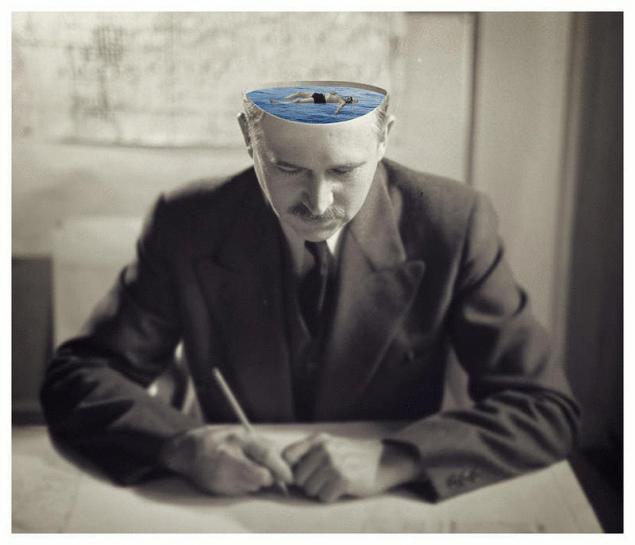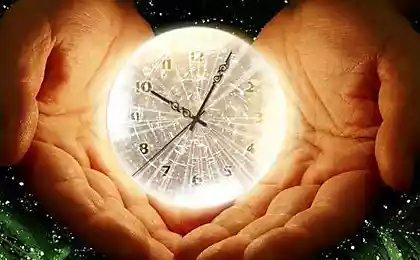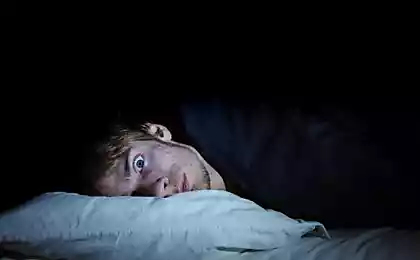566
False memories and sleep deprivation — how the brain deceives man

Given the tendency of our society to insomnia and small amount of sleep, you should think about the consequences of such a life. "Theory and practice" told two articles about experiments in sleep deprivation — from the German magazine Focus.de and the British website Psyblog.
That lack of sleep is not the best option for a healthy lifestyle is nothing new. Learning becomes more energy and concentration during work is reduced. But about how sleep deprivation affects the quality of memory for events or persons, much less is known. "I was surprised at how little research is conducted on the subject due to lack of sleep with the memory distortion of eyewitnesses of crimes," — says a leading specialist of the University of California, Irvine Stephen Freund. He and his colleagues attempted a more detailed study of this problem.
For the experiment, the scientists invited to the lab late in the night 104 students. Half of the subjects showed a series of photographs of the same criminal — a pickpocket. Then some of them had to go to sleep and stay awake all night. With the other half of the subjects, everything was done in reverse order: some people did not sleep until morning, while the other enjoyed a healthy sleep and in the morning they got pictures of conventional criminals.
The next stage of the experiment all participants were given texts in which, with the addition of false details (like the hair color of the offender), described the hustler pictures. After all subjects had to describe the perpetrator and note on the questionnaire what they had seen details.
"If you yesterday did not sleep properly, and then noticed something interesting on the Internet, be prepared that telling your friends about it, you unknowingly lie to them"
As a result, the experiment showed that visual memory is much worse when the lack of sleep. Those people that saw the pictures and texts after a sleepless night, much more often were confused in the testimony, than their well-rested colleagues. Those subjects who saw the photo before the sleepless night, the results were average. According to the researchers, this demonstrates what an important role sleep plays in the ability to memorize information.
Confounding effects of irregular sleep may explain why testimony in actual practice, is so often very different from each other: the sleepy witnesses were simply false memories. These findings have important implications not only for criminology, but also for people who expose themselves to chronic sleep deprivation. Lack of sleep brings the person in a special state of consciousness in which the perception of the surrounding reality become fuzzy and many parts rekonstruiruet brain again when re-attempting to access information. So, the important event can completely change the emphasis, going through threads of memory. If you yesterday did not sleep properly, and then noticed something interesting on the Internet, be prepared that telling your friends about it, you unknowingly lie to them in some detail. Out on the street, sleepy, don't try to make important in the long term solutions and start potresaushi in the future of remembering things. Instead, the best solution is to take a NAP.
Irregular sleep of witnesses shall be taken law enforcement into account — and their opinion can be assessed as less reliable. Further experiments to study the correlation between memory and sleep deprivation will focus on how insomnia generates a distortion perception and remember events.
Poor sleep: eight hours of restless sleep worse than four hours per night zdravoohranenia four times for 10-15 minutes — these interrupts long enough to ruin a person's day and make him grouchy. Interrupted night sleep worse than just half a night of sleep — study has found, dealing a new approach to night's rest. Despite the fact that parents stand in the middle of the night to the child several times the usual case, the effects of such overload the body has never been systematically investigated.
Parents are not the only one who suffers from the interruptions of sleep, explains Professor AVI the Garden, guiding the study: "Doctors who can get a few night calls from patients, can also experience the effects of sleep disorders. Such late-night conversations are relatively short — only five or ten minutes, but they hit a natural rhythm. The impact of the interruption of sleep on daily mood has never been studied. Our study demonstrates how a serious harm short of waking cognitive abilities and emotional background."
"The impact of the interruption of sleep on daily mood and cognitive abilities have never been studied"
In the study, subjects were awakened four times for a standard eight-hour night's rest. Every time they woke up, they were asked to solve a problem on the computer which took about 10-15 minutes, and after they returned to the bed. In the morning, the subjects passed a test for intelligence, alertness and mood. The results were compared with the results of the tests of the other two nights (one to eight hours of uninterrupted sleep another four hours. Those effects, which caused interruption of sleep were comparable to the effects of the four-hour night. People feel more depressed, tired, confused and lethargic. It was the effect of just one night with interrupted sleep.
However, the accumulation of harmful consequences of such nights can be in the nature of a snowball, says Orchard: "Our research shows that can only do one night with disrupted sleep mode. But we know that these effects accumulate and therefore parents who awaken three to ten times per night for several consecutive months, to pay for the night vigils of the more serious sleep disorders. In addition to the physical effects on the body, interrupted sleep often has psychological consequences: parents often develop a sense of anger directed at their children, and then guilt over these negative emotions."
Source: theoryandpractice.ru
As to suffer no matter what—a manual for men and women
Taku-Tanku is a tiny mobile house that can be towed by bike























